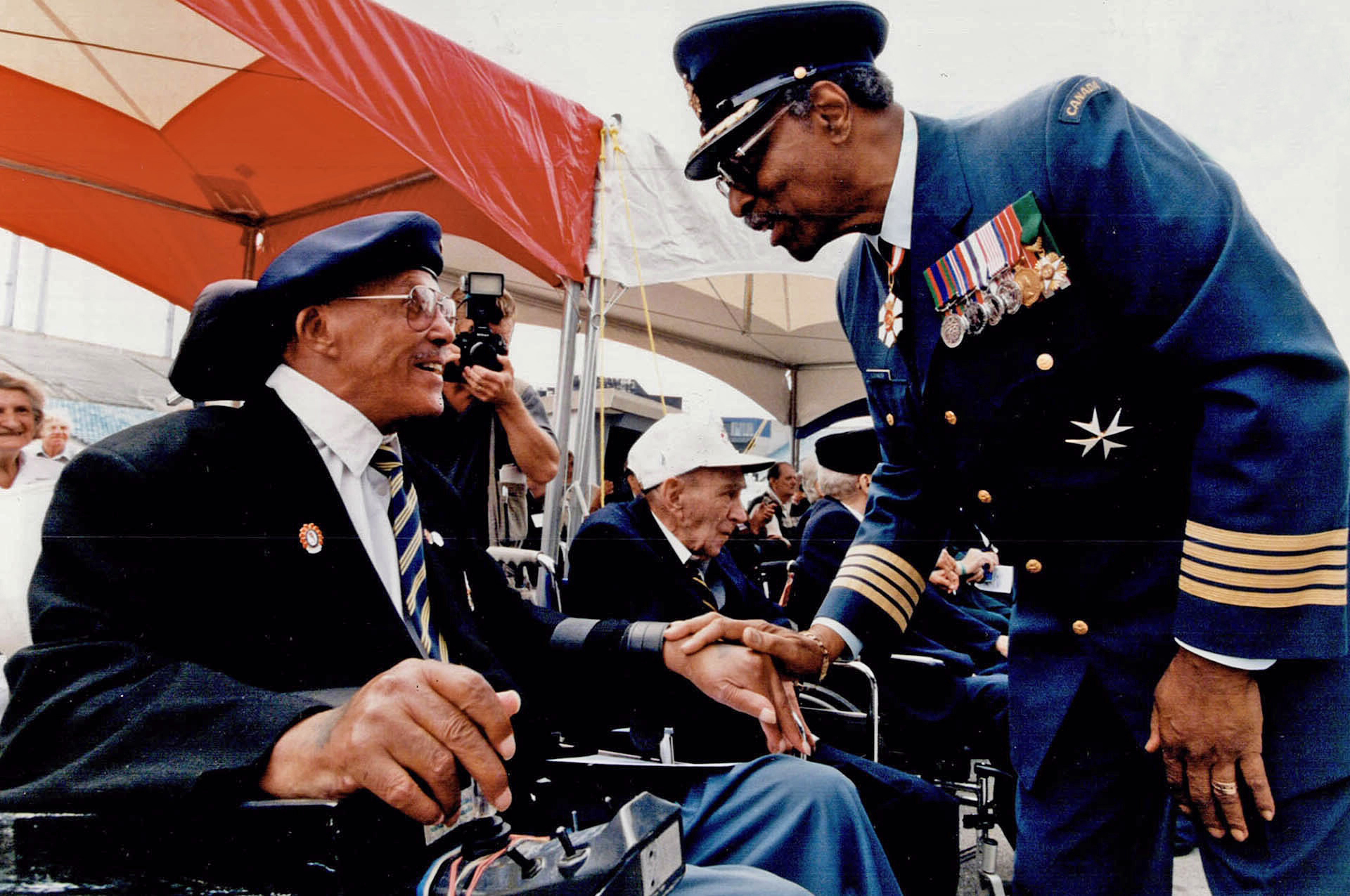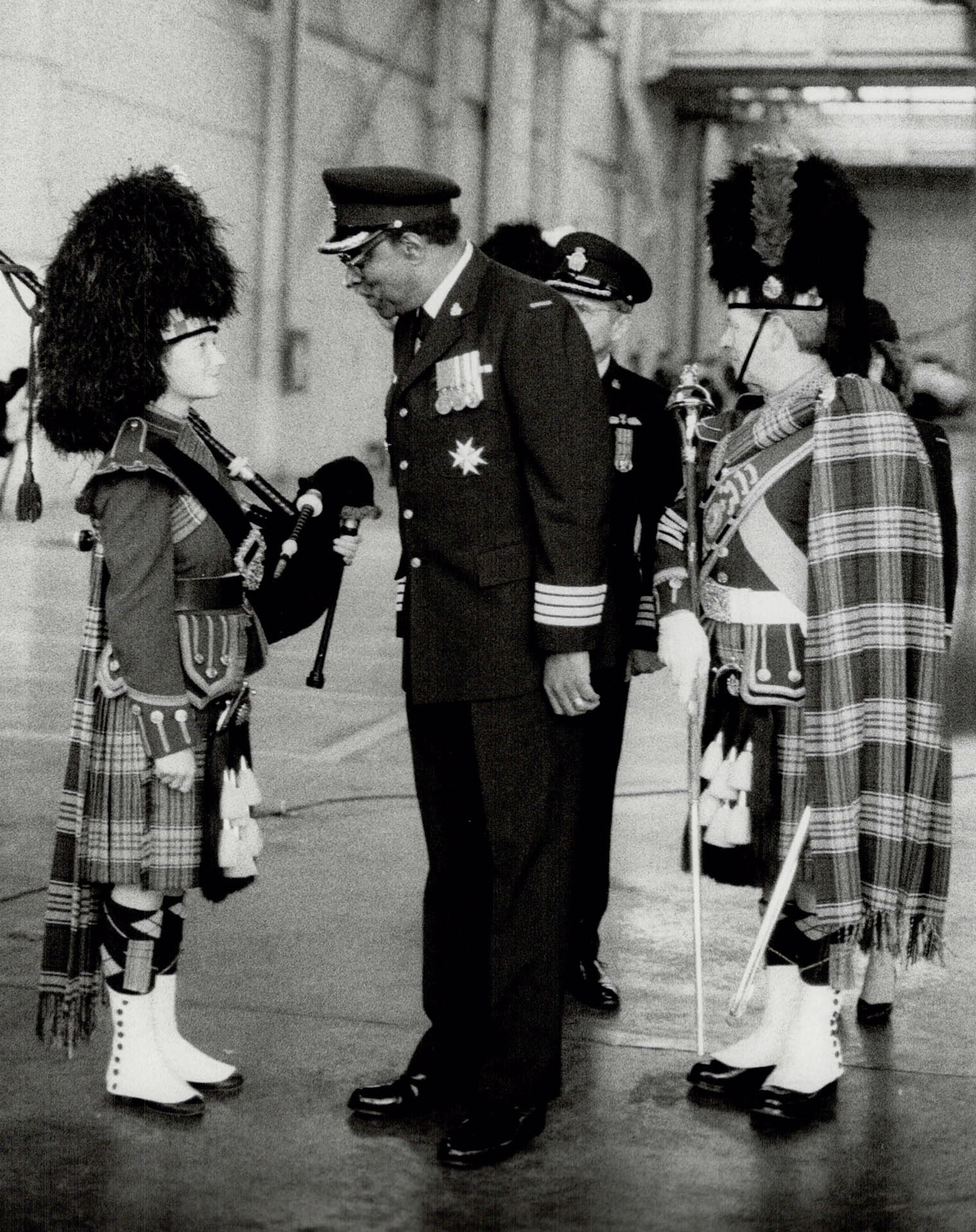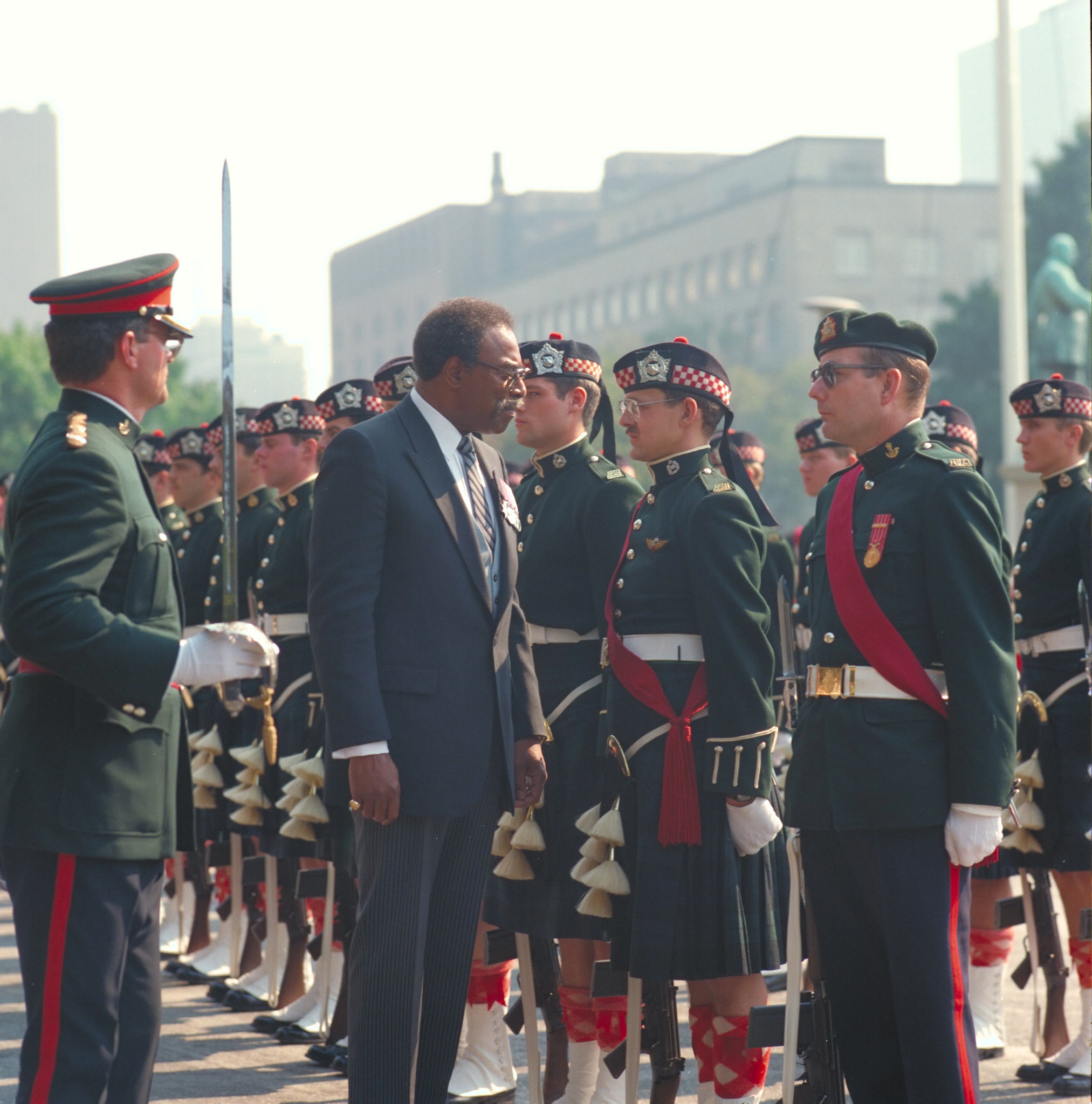Lieutenant-Governor Lincoln Alexander was one of the first Black Canadians to serve in RCAF
News Article / February 11, 2020
Click on the photograph under “Image Gallery”T to see more photos.
February is Black History Month throughout Canada. To mark the month, the RCAF is publishing articles about Black Canadians who, during or after their career in the RCAF, have achieved great things for Canada.
Here is the story of Lincoln Alexander.
By Joanna Calder
“The air force experience taught me the value of self-respect, discipline, and confidence, and those are elements that have served me well throughout my life. They apply to all areas, whether the air force, the law, or politics,” said Lincoln Alexander in his 2006 memoir Go to School, You’re a Little Black Boy.
Lincoln Alexander, Canada’s first Black person elected to the House of Commons, first Black federal cabinet minister, and first Black person to serve as lieutenant governor of Ontario, died October 19, 2012, at the age of 90.
He was born in Toronto, Ontario, on January 21, 1922. His father, Lincoln MacCauley Alexander Sr., was from St. Vincent and the Grenadines, and his mother, Mae Rose Royale, was from Jamaica. Job options for Blacks were limited in those days so his father, who was a carpenter, worked as a railway porter; his mother worked as a maid. Mr. Alexander’s first job was in a laundry in Harlem, New York, where his mother had moved after she left her husband in the 1930s.
In 1942, Mr. Alexander joined the Royal Canadian Air Force. “None of the three services – army, navy and air force – were interested in having Blacks,” he said. “I opted for the air force. Besides, I thought I looked best in their uniform.”
In fact, 13 Black-Canadians were able to enlist between 1936 and the lifting of the colour barrier on March 31, 1942. Major Mathias Joost, of National Defence’s Directorate of History and Heritage, has been able to identify only 59 Black Canadians who served in the RCAF during the Second World War; one of those was a woman.
Mr. Alexander had poor eyesight and thus was not deployed overseas. He trained as a wireless operator in places such as Guelph, Ontario, and Lachine, Quebec. He then served at Number Seven Air Observer School, in Portage La Prairie, Manitoba, which was a British Commonwealth Air Training Plan (BCATP) establishment. He was discharged at the end of the war, with the rank of corporal.
“I have a special bond with the people who serve in the Canadian Forces and for those I served with during the war,” he said. “It troubles me deeply to hear the debates that arise annually over whether Remembrance Day is still relevant, or to hear people disparage what our soldiers have done for us. It’s incredibly naïve… We live in a country rich in freedom and democracy, and it is important that we pause annually to recognize those people who have sacrificed so that we can enjoy such privileges.”
Mr. Alexander’s connections with the Air Force continued in his later years. He served as honorary colonel of 2 Tactical Aviation Wing (later 2 Air Wing) from November 1985 to December 1996. A Royal Air Cadet squadron – 876 Lincoln Alexander Squadron, in Scarborough, Ontario – is named in his honour and he was an honorary director of the Air Cadet League of Canada.
Mr. Alexander was educated at McMaster University in Hamilton, Ontario, and later studied law at Osgoode Hall in Toronto. Elected as a Member of Parliament for Hamilton West in 1968, he was Canada’s first Black person elected to the House of Commons, where he served for 12 years.
He made history again in his final year in Parliament when he was appointed Minister of Labour, and thus Canada’s first Black cabinet minister.
In 1985, Lincoln Alexander was appointed Ontario’s 24th lieutenant governor, the first member of a visible minority to hold this post anywhere in Canada.
During his more than six years as lieutenant governor, he focused on youth and education; an awards program for young people who demonstrate leadership in combatting discrimination and racism within their schools or communities was established in his name.
He then accepted a position as chancellor of the University of Guelph. In 1996, he was chair of the Canadian Race Relations Foundation and was also made honorary commissioner for the Ontario celebrations of the International Year of Older Persons.
He was appointed a Companion of the Order of Canada, and to the Order of Ontario, in 1992, and in June 2006, he was named the “Greatest Hamiltonian of All Time.”
“Mr. Alexander will always be remembered for breaking down racial barriers in Canadian politics, and his concern for social justice, his compassion and his humanity were evident and prominent throughout his life,” said then-Minister of National Defence, Peter MacKay in a statement following Mr. Alexander’s death. “He left an indelible imprint on Canada and the Canadian political system.
“His enormous heart and compassion, leadership and love of life matched his physical size. He was a role model for all and will be missed by all who knew him.”
A state funeral was held for Lieutenant-Governor Alexander on October 26, 2012, in his hometown of Hamilton, Ontario. He lay in state at the Ontario Legislature in the lobby of the main legislative building until the evening of October 22, and then lay in repose at Hamilton City Hall until Thursday, October 25.
All Mr. Alexander’s quotations are from "Go to School, You're a Little Black Boy: The Honorable Lincoln M. Alexander: A Memoir," published in 2006 by Dundurn Press.
With files from the office of the premier of Ontario’s website.



